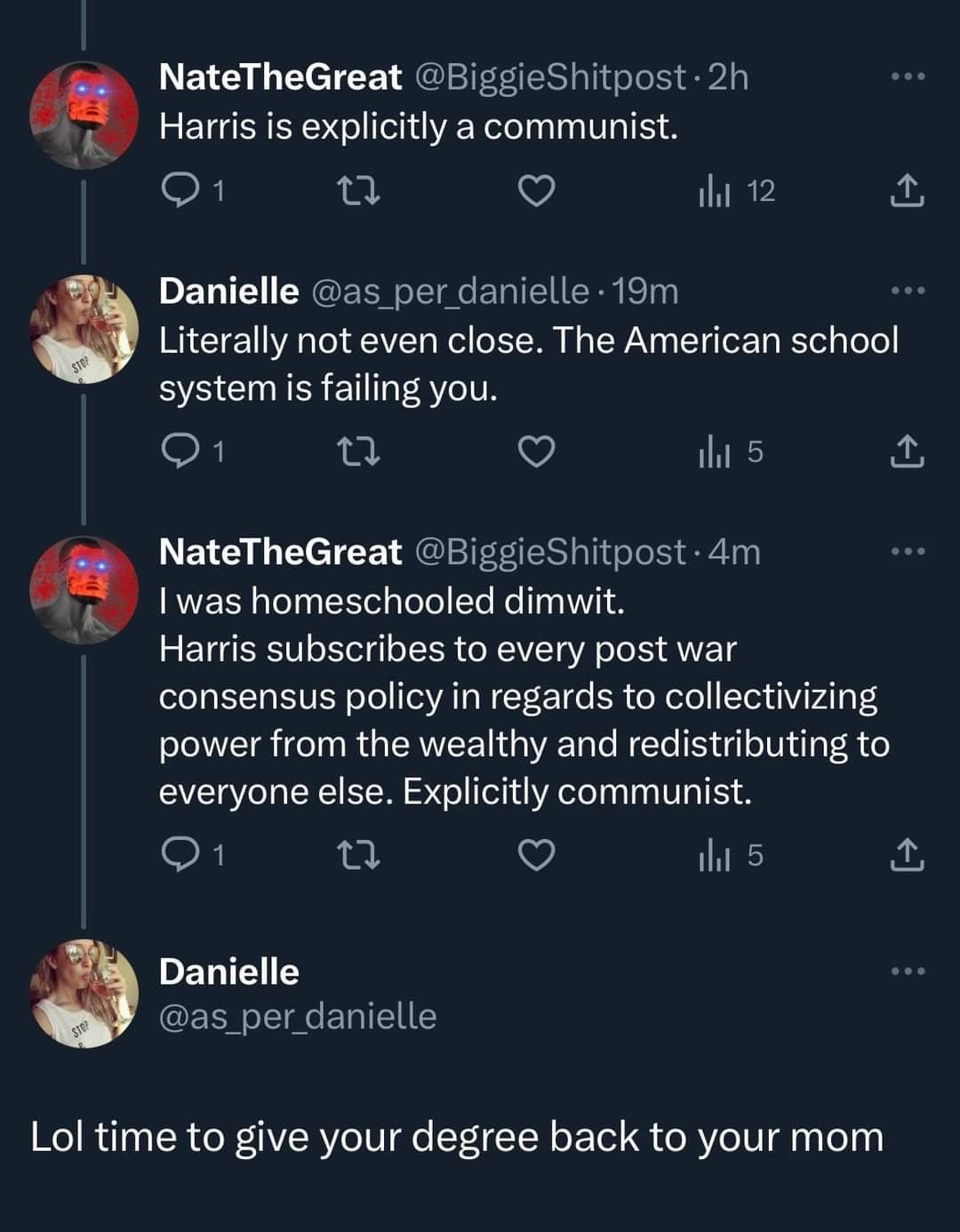this post was submitted on 14 Aug 2024
1419 points (98.9% liked)
Political Memes
6950 readers
6098 users here now
Welcome to politcal memes!
These are our rules:
Be civil
Jokes are okay, but don’t intentionally harass or disturb any member of our community. Sexism, racism and bigotry are not allowed. Good faith argumentation only. No posts discouraging people to vote or shaming people for voting.
No misinformation
Don’t post any intentional misinformation. When asked by mods, provide sources for any claims you make.
Posts should be memes
Random pictures do not qualify as memes. Relevance to politics is required.
No bots, spam or self-promotion
Follow instance rules, ask for your bot to be allowed on this community.
founded 2 years ago
MODERATORS
you are viewing a single comment's thread
view the rest of the comments
view the rest of the comments

Tell me if I get off course but some bullet points:
Resources are not limitless.
Unrestrained capitalism always leads to consolidation of control over finite resources and exploitaton of other individuals.
Limiting opportunities for individual development is negative to the society.
Individuals in the society are a distribution of variable abilities.
So....
Governments role in a well regulated market would be:
Limit consolidation of resources by any individual providing equal access for responsible use.
Preserve resources by limiting and regulating their use.
Provide equal opportunity for all individuals to engage in the market.
Provide a support network for all individuals to allow them to take reasonable risks.
Pretty much my thinking, but it shouldn’t even be necessary to mandate “limit consolidation of resources”. We do need wealth to be attainable, as the driving factor of capitalism, however the other factors you list would have the limiting affect if they were implemented.
Also, one of the goals of such a government needs to be “for the benefit of its citizens”. Every choice of a well-run government to regulate capitalism needs to be “for the benefit of its citizens”, and most failures in actual governments are when they don’t follow this
The main problem I see with this approach is regulatory capture. If you allow individuals to consolidate resources even slightly then they begin to form 2 distinct classes, the owners and the workers, where one is economically advantaged. Even in a democratic society that economic advantage allows the owning class to exert greater influence and nudge things in their favor. This has a snowball effect until you end up where we are now, a bourgeois democratic government that functions exclusively for the owning class.
It’s all a matter of degree: it’s the excessive inequality that results in excessive advantage. I’m all for reducing the inequality gap (a lot) but there does need to be one for capitalism to work.
As a prime example with income taxes in the US, most people prefer it be progressive.
And that is precisely why capitalism should be abolished. Any gap will grow, the only way to stop it is to close it and hold it shut. Any amount of inequality is injustice.
And then the wealth incentive overcame the tax pressure and reversed it. The wealth incentive is perverse, there is no reason to preserve it.